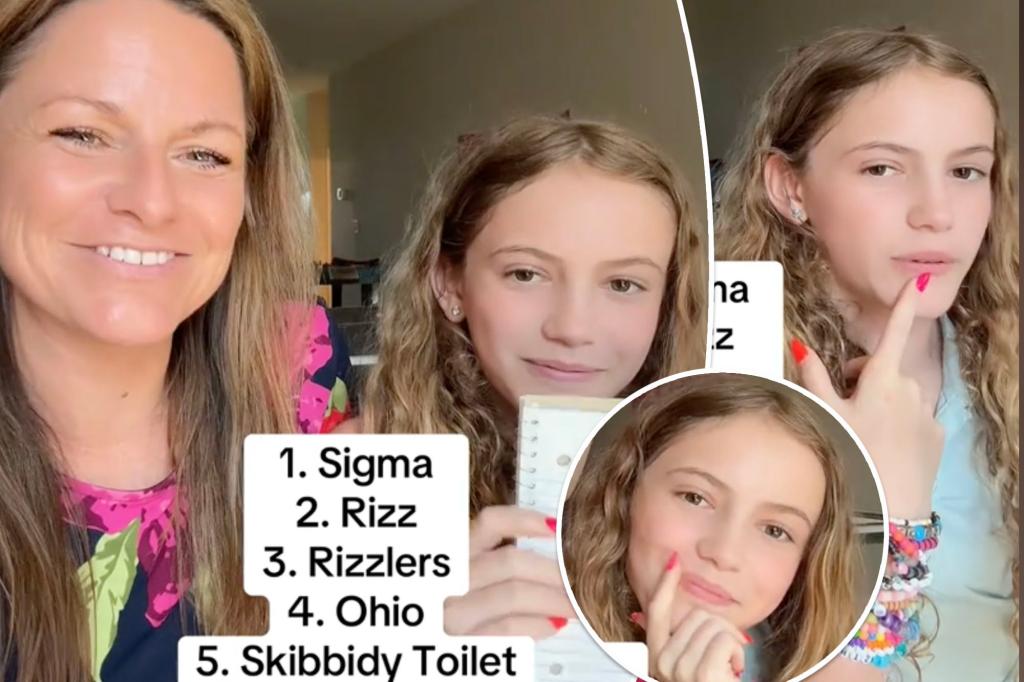Jennifer Maxwell, a North Carolina mom and content creator, attempted to learn some new slang terms from her 10-year-old daughter, only to find herself confused by the meanings. In a viral TikTok video that garnered millions of views, Maxwell struggled to decipher words like “Sigma” and “Ohio,” feeling like her daughter was speaking a foreign language. The slang terms ranged from positive meanings like “the best of the best” to negative connotations like “weird and dumb,” leaving Maxwell baffled at the evolution of language among Gen Alpha kids.
One of the first words Maxwell encountered was “Sigma,” which her daughter explained meant someone who is the best of the best, similar to being called an “Alpha.” The term “rizz,” shortened for charisma, described someone who was a smooth talker and had the ability to pull others. When Maxwell tried to interpret “rizzlers” as a group of people with charisma or aspiring to have charisma, her daughter corrected her by stating that it meant looking for people with optimum charisma in a crowd.
As Maxwell continued to face more slang terms, she learned that “Ohio” was used as an insult, indicating someone who is weird and dumb. The word “skibbidi” or “skibbidi toilet” referred to someone who was weird, while “mewing” was defined as working on one’s jawline. Lastly, “Chad Alpha” surprised Maxwell as it meant the leader or the best person, unlike her initial assumption based on negative references to “Dads, Brads and Chads” in the past.
The confusion surrounding Gen Alpha slang was not limited to Maxwell, as other millennials and Zoomers also expressed their bewilderment. Many viewers found the new words to be cringe-worthy and possibly indicative of underhanded bullying in middle school. Some admitted to banning their children from using certain slangs due to a lack of understanding or concerns about the nature of the words. Overall, there was a sense of disconnect between the older generations and the evolving language of Gen Alpha, with many feeling nostalgic for their own slang terms from the past.
Despite the puzzled reactions from adults, the Gen Alpha children seemed unfazed by their unique lingo and continued to use it to communicate with one another. Some comments suggested that the slang was part of a progression in language that was difficult for older generations to grasp, while others expressed concerns about the potential negative impact of such words on social dynamics among kids. As the video gained traction online, it highlighted the generational gap in communication styles and the evolving nature of language among younger individuals, sparking debates about the impact of slang on society as a whole.


